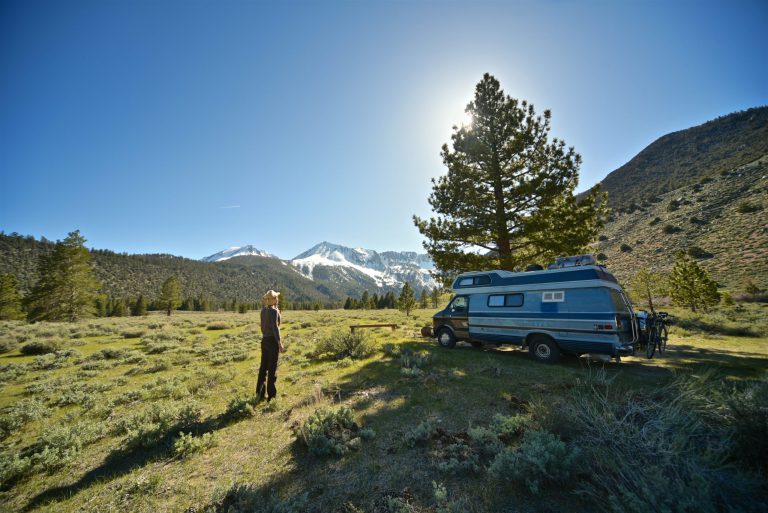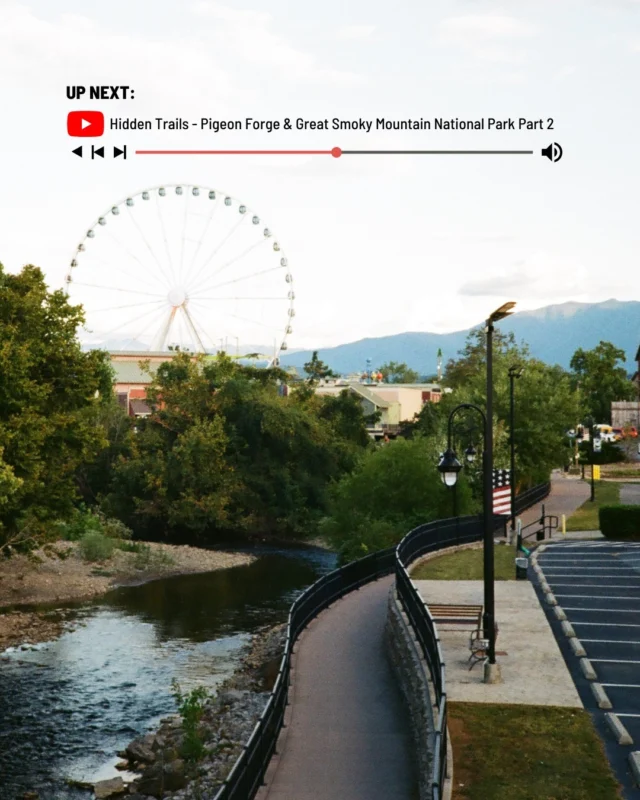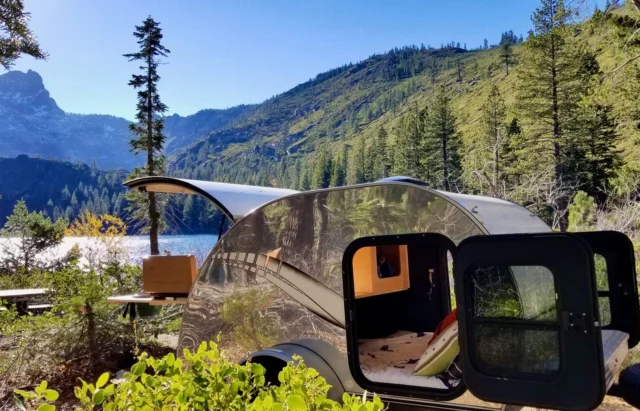
In recent years, we’ve noticed that more and more people are downsizing their things, moving into a van, and hitting the road for a vagabond lifestyle. We get it. There certainly is a magical kind of draw to such a free lifestyle, making the “van life” movement completely understandable. After all, who wouldn’t want a life full of adventure?
That said, if you plan to jump into van life, there are several things you’ll want to know first. This van life how-to guide will help you figure out the ins and outs so you can head into van living with confidence, knowing you have your ducks in a row and knowing what to expect.
What is Van Life?
If you’ve never heard of van life, you may be wondering what it is exactly. The answer? It involves living in a converted van or campervan, traveling whenever and wherever you wish, and often saving money along the way. It isn’t always the most comfortable way of living, but it is adventurous for sure.
Who is Van Life For? (Is It for Me?)
Who should choose to live the van life? Well, this is a difficult question to answer because the choice is such a personal one. That said, we can give you some questions to ask yourself and a few tips that might help you decide whether the van lifestyle is for you.
Ask Yourself These Things:
Do I have a strong sense of adventure?
A strong sense of adventure is a must when on the road. You must be willing to experience new things, and even unpleasant things from time to time. Additionally, you need to be able to go with the flow, as things won’t always go as planned.
Am I okay with tight spaces?
A van isn’t a very big space. You have to be okay with small, enclosed spaces in order to live in a van. Additionally, you have to be okay with limited storage, and therefore fewer possessions.
How do I handle temperature extremes?
Van’s aren’t usually very well insulated, and limited power can make running a heater or air conditioner difficult or impossible. Therefore, you must be able to handle temperature extremes.
Do I have good problem solving skills?
Problems absolutely will come up during your travels. Whether it’s a leak that needs fixing, an issue with finances, or something else entirely, the ability to take matters into your own hands and solve problems is incredibly valuable when living the van life.
Try Van Life Before You Buy
Still not sure whether living on the road in a van is for you? You could always give it a try before you completely change everything about the way you live. There are plenty of vans available for rent right here on RVShare. Choose one that is similar to what you might choose as a van dweller and give van living a try for a week or two.
You might be surprised by just how much you love it—or, perhaps you’ll discover you love the travel aspect but prefer a bigger home-on-wheels, such as an RV.
Alternatively, you could find that the challenges are too much for you, and that you much prefer life in a sticks-and-bricks home, exploring the world only occasionally and always returning to your comfortable home at the end of it all. And that’s okay too! There’s no one-size-fits-all answer here.

Pros about Living in a Van
As you might imagine, there are many benefits to living the van lifestyle. Some of these are obvious, and others may come as a surprise. In any case, it’s nice to know what kinds of benefits you might expect from choosing van life.
Below are some of the pros we think you might appreciate most.
Travel the Country
The most obvious benefit of living in a home-on-wheels is the ability to travel whenever and wherever you like. This freedom truly is amazing and is what makes van life worthwhile for many.
Change Your Perspective
Because you can’t own a whole lot of stuff while living in a van, and because you get to experience so many new things while traveling, your perspective about what’s important tends to shift. It becomes much easier to see what truly matters most and what you can live without.
Make New Friends
Many people seem to believe that traveling full-time means living without friends. However, nothing could be further from the truth.
The van life community is surprisingly large and grows more every day. This is a group of welcoming, loving people who are just waiting to have you join their adventures, giving you the tight-knit community so many of us crave.
On top of the van lifers, you’ll likely make other friends during your travels as well. This is awesome because it allows you to get to know people from all different areas of the country and walks of life, giving you the opportunity to open your mind.
Save Money
Finally, many people find that they save loads of money by taking on the van lifestyle. If you set your rig up right and are able to live the majority of the time outside of campgrounds, you will likely be able to do the same.
Cons about Living in a Van
Of course, there are downsides to living in a van as well. Many people are quick to point out the cons, but others have a hard time seeing them at all. If you belong to the latter group, the list below may be helpful when deciding whether or not to jump into van life.
Tiny Living Space
As we mentioned before, the living space in a van is tiny. While this can be nice in that it forces you to live as minimally as possible, it can also be incredibly annoying.
Loss of Comfort
In addition to being small, a van generally isn’t as comfortable as a house. Sure, you’ll have a bed, but in most cases, even a table and chair is a no-go. You likely won’t have a shower or toilet, and even things like a heater and air conditioner may not be in the cards.
Unexpected Problems
Those issues we mentioned above? They will come up. In fact, because you are putting extra wear and tear on your van by living in it, they’ll probably crop up often. This can definitely put a damper on things and cause stress levels to run high.
Unfortunate Stereotypes
Finally, there is the issue of stereotypes. As we all know, living in a van has some seriously negative stereotypes attached to it. If you’re the type of person who cares what others think, this could make van life harder for you.

How to Live in a Van
Now that we’ve discussed who van life might be best for, you probably have a pretty good idea of whether or not you would be a good candidate for this lifestyle. The next step is learning how to live the van life.
On the surface, this is simple enough. However, there are some things you should know. Besides, having step-by-step instructions on how to get started can be extremely helpful.
Below is our guide on how to live in a van as a complete beginner.
Seek Out Remote Work
First things first, you will need a way to make money while traveling. Try to find internet-based work or short term gigs you can do along your route.
Luckily, because van life tends to be much cheaper than living in a traditional home, you won’t need as much income as you’d think—but you definitely need something coming in.
Downsize Your Things
The next step is to downsize. This is actually harder than it sounds, so leave plenty of time to sort through everything, figure out what you actually need to keep, and get rid of the rest. We recommend selling what you don’t need anymore in order to help fund your lifestyle switch.
Find the Perfect Little Home
Of course, you will need to find a van to live in. A factory-made campervan is just fine, but often people find that custom-built vans hold up a lot better.
Whether you choose to snag a used campervan or purchase a brand new van to remodel yourself, make sure you are 100% happy with whatever you pick before handing over any money.
Create a Budget
One of our most important van dwelling tips is to make sure you set a budget at the beginning of your adventure, stick to it throughout your travels, and revisit your budget on a regular basis. Figure out exactly how much van life is going to cost you and how much money you’ll have coming in.
Hit the Road
Last but not least, get out there and start living your dream! As long as you’ve taken the steps above, everything else should fall into place.
Van Life Cost?
In the guide to living in a van above, we discussed setting a budget. This is, in most cases, one of the most important things to know about how to live out of a van. Of course, it’s difficult to create an accurate and reasonable budget if you don’t know what to expect in terms of costs.
Below we’ve compiled a list of the top expenses people living in a van might incur on a regular basis. Consider these when creating your van life budget.
Cost of The Van
The first cost to consider is the cost of the van itself. Be sure to include not only the price you pay for the vehicle (whether it’s paid in full or monthly installments) but also the cost of any upgrades you might need to make before living in the van.
Van Life Essentials
There are going to be things you need to purchase before living in a van. A solar shower, a cassette toilet, and other such essentials all cost money. Budget for these things in your starting costs, so you can begin your adventure feeling well equipped for anything.
Living Costs
Obviously, you will still need to pay for things like food and toiletries. While these costs are significantly reduced for anyone living in a van, they do still exist and must be accounted for.
Cost of Upkeep
This is one that many people forget to budget for. Your van will need to be kept up, both mechanically and as a living space. Be sure you set aside money each month for things like oil changes, new tires, and other such maintenance items.
Cost of Traveling
Traveling costs money. Fuel costs alone can make up a huge chunk of your budget, especially if you plan to travel often. Figure out how much fuel you’ll use in a month and account for that.
You’ll also want to account for things like attraction admissions and campground fees. Keep in mind that both of these things can be reduced using memberships—e.g. camping clubs to save on campground fees, and reciprocal memberships to reduce admission fees.
Unexpected Expenses
Finally, there is the unexpected expenses category. Setting money aside in an emergency fund makes things a lot less stressful when things do happen to go wrong. Trust us when we say that you definitely want to be setting money aside each paycheck for unexpected expenses.

Van Life FAQ
Need even more van living tips? The following are some of the most frequently asked questions about van life, as well as our answers to each. These answers should be enough to get anyone started in their van dwelling adventures.
Where do you park your van at night?
There are many places you can park your van for a good night’s sleep. In some places, simply parking on the side of the road is possible. In others, you may want to choose a parking lot and get the business manager’s permission before staying the night.
Of course, you could also choose to stay in a campground or even take advantage of free boondocking and a beautiful view on government-owned (BLM) land.
How do you shower when you live in a van?
This depends a lot on where you happen to be when the need for a shower arises. Are you in the middle of nowhere? A simple solar shower hung on the back door of your van might be just the thing.
That said, those parked in the city will need to seek out an indoor shower somewhere. Gyms tend to be good places to get a hot shower, and a membership to a gym chain can make this totally affordable. Campground showers and truck stop showers are also good options if you’re willing to pay.
How do you use the bathroom when you live in a van?
Generally speaking, you can use public facilities while out and about during the day—and if you’re out in the wilderness, it’s possible to sneak behind a bush and bury your business.
However, what do you do when you need to relieve yourself in the middle of the night? Many people purchase cassette toilets for this purpose. Others make their own “porta potties” out of 5-gallon buckets.
Either way, you will need to find a way to get rid of the waste responsibly the next day, something that usually involves carrying it into a public restroom. Since this can be pretty awkward, you will want to try to avoid using your van toilet whenever possible.
How do you do laundry when you live in a van?
Obviously, you will need to do laundry. In fact, you might need to wash clothes even more often, since you’ll likely have fewer of them.
The most reasonable solution is to head to a local laundromat. However, there is also the possibility of using a manual washing machine or even a washing bag such as this one, then hanging your clothes to dry.
How do you get mail while on the road?
When it comes to getting mail during your travels, you have a couple of options. The first is to have a friend or relative receive your mail and send it to you in batches or hold onto it until you return.
Another option is to pay for a mail forwarding service. We especially like Escapees and Saint Brendan’s Isle in terms of mail forwarding services, and both are able to help you set up a domicile as well if needed.
How does insurance work?
For the most part, insurance works much the way it would if you lived in a traditional home. You will still need insurance on your van, and if you can do so, you should definitely consider a full coverage policy or even a full-timers policy that covers your possessions as well as your vehicle.
Health insurance can be obtained through your employer if you have one or can be purchased either through the Health Insurance Marketplace or by paying out of pocket.
Can I still do van life with pets?
Sure, you can! There are plenty of van lifers out there who’ve hit the open road with their pups or kitties. However, you will want to make sure you are taking the needs of your animal into account when making your plans. This article should help you do just that.
How do you decide where to go next?
In some cases, your travel may be dictated by work. In other cases, you’ll have a whole country of options to choose from, which can be overwhelming. Narrow your options down by considering the following:
- Where you’ve been already
- The weather
- Where friends and family are
- Sites and attractions on your bucket list
- Your budget
How do you deal with weather changes?
As mentioned above, the weather should always be taken into consideration. This is because the insulation in most vans is not so great. This makes keeping the vehicle comfortable quite difficult.
The best thing to do about this issue is follow the nice weather. Unfortunately, however, that isn’t always possible.
If you find yourself in the middle of a cold snap, we recommend the following:
- Insulate windows with Reflectix and put down a rug.
- Invest in a small propane heater such as a Mr. Buddy Heater. (Make sure to ventilate well and have a carbon monoxide detector.)
- Layer up your clothing and blankets and purchase a sleeping bag rated for very cold temperatures.
When you have to deal with very hot temperatures, you can try the things below:
- Insulate the windows with Reflectix.
- Park in the shade.
- Stay out of the van during the day. Head indoors somewhere instead.
- Use vent fans or small portable fans.
- Stay hydrated, wear a wet t-shirt, and use ice packs on your skin.
- Avoid using any electronics that can put off heat.
Where do you get rid of your trash and recycling?
Trash and recycling can be thrown out whenever you come across a bin that is open to the public. It’s usually easier to get rid of small quantities of trash and recycling at a time, so we recommend creating as little waste as possible and throwing it out at least once a day.
If you have a large amount of garbage to get rid of, you might consider staying in a campground for a night in order to use the dumpsters there.
How do you make money while on the road?
One of the most common problems people run into when trying make the switch to van living is a lack of income while traveling. Thanks to the internet though, this is actually fairly easy to overcome.
Consider searching for freelance work on a site like Upwork, or searching for remote jobs on FlexJobs. You could also take on short-term gigs and seasonal work as you travel, staying in one place just long enough to make a bit of money. These kinds of jobs can be found through Craigslist or sites such as Shipt, Uber, and Postmates.






